
# 1159-60 - 1960 4c + 8c Ignacy Paderewski
Â
4¢ Ignacy J. Paderewski
Champions of Liberty Series
Birth of Ignacy Paderewski
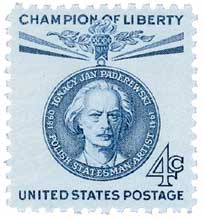
Ignacy Jan Paderewski was born on November 6, 1860, in Kuryłówka, Podolia (in present-day Ukraine).  He was an accomplished pianist and composer as well as the first prime minister of independent Poland.
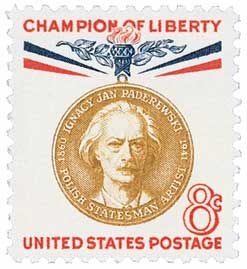
At age 12, Paderewski was admitted to the Warsaw Conservatorium to study piano. He later went to Berlin and Vienna to continue piano and learn composition. Paderewski made his debut in 1887 and was soon popular around the world.
Paderewski was perhaps the greatest pianist of his time, admired by all who heard him play.  In addition to piano pieces, the Polish virtuoso composed dozens of works including operas, sonatas, and symphonies. His music was so popular that he became his own competition. While fans flocked to see him perform live at one location, one of his operas would open to a sold-out crowd across town.

Over the years, Paderewski earned significant wealth and shared it through many philanthropic projects.  He donated $10,000 to establish a trust fund for America composers, which established the Paderewski Prize.  He established music foundations at schools in the US and Europe and sponsored several concert halls.  He also sponsored several monuments, including New York’s Washington Arch.
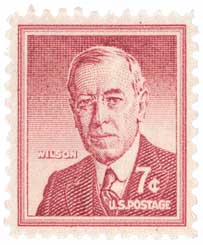
At the breakout of WWI, Paderewski remained staunchly patriotic to his native Poland. He maximized on his fame to raise funds to help Poland’s war victims. He called it his new “begging†role. Paderewski joined the Polish National Committee in Paris and established the Polish Relief Fund in London. Paderewski traveled the United States seeking contributions for various relief funds and charities. He also met with President Woodrow Wilson in 1918 to ensure that Polish independence was included as point 13 in his peace terms, also known as the Fourteen Points.
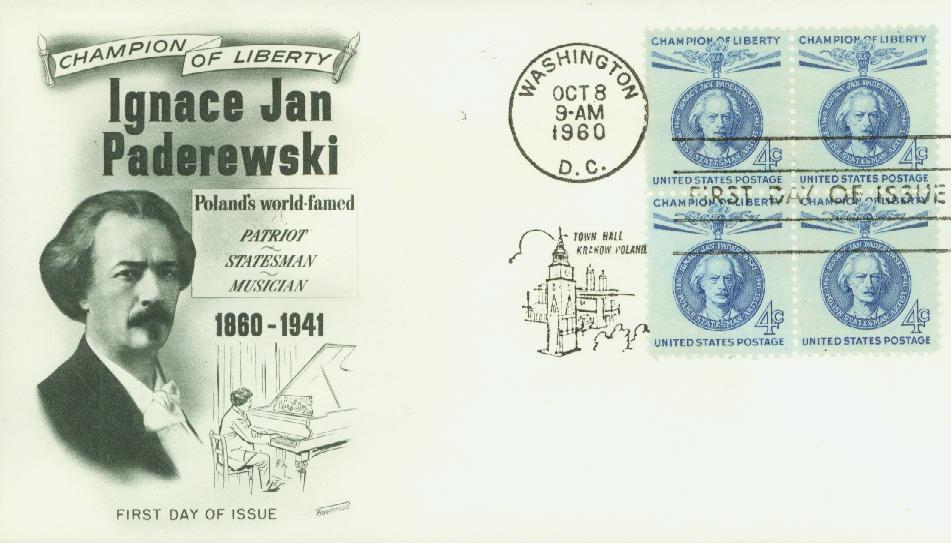
As the war came to an end and his country’s fate was uncertain, Paderewski delivered a stirring speech that sparked the Great Poland Uprising. By the start of 1919, Poland was independent. On January 16, 1919, Paderewski was sworn in as minister of Foreign Affairs and on January 18 he became the first prime minister of the newly independent Poland. In these roles, he attended the Paris Peace Conference and signed the Treaty of Versailles. After resigning his post in December, he became the Polish ambassador to the League of Nations.
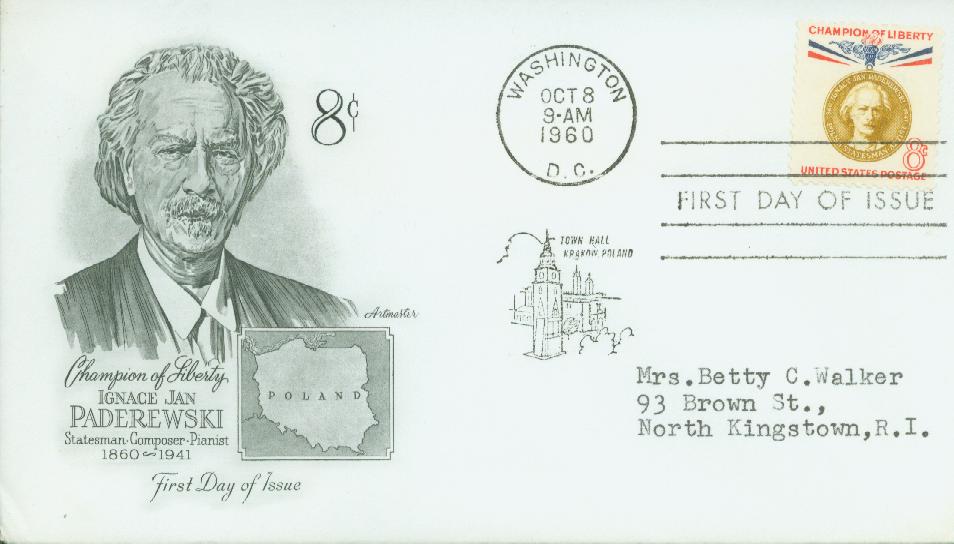
When Paderewski finally returned to the concert stage in 1922, he was again lauded as a “poet of the piano.â€Â He held his first US concert after a long break at the famed Carnegie Hall. Fans also filled the 20,000-seat Madison Square Garden. With his reestablished fame, he continued his philanthropic endeavors. He played charity concerts, established music scholarships, and graciously donated his own funds. From the start of WWII until his death, he again poured his efforts into Polish relief. The pianist continued to perform all over the world until his death at age 80 on June 29, 1941.
Â
4¢ Ignacy J. Paderewski
Champions of Liberty Series
Birth of Ignacy Paderewski

Ignacy Jan Paderewski was born on November 6, 1860, in Kuryłówka, Podolia (in present-day Ukraine).  He was an accomplished pianist and composer as well as the first prime minister of independent Poland.

At age 12, Paderewski was admitted to the Warsaw Conservatorium to study piano. He later went to Berlin and Vienna to continue piano and learn composition. Paderewski made his debut in 1887 and was soon popular around the world.
Paderewski was perhaps the greatest pianist of his time, admired by all who heard him play.  In addition to piano pieces, the Polish virtuoso composed dozens of works including operas, sonatas, and symphonies. His music was so popular that he became his own competition. While fans flocked to see him perform live at one location, one of his operas would open to a sold-out crowd across town.

Over the years, Paderewski earned significant wealth and shared it through many philanthropic projects.  He donated $10,000 to establish a trust fund for America composers, which established the Paderewski Prize.  He established music foundations at schools in the US and Europe and sponsored several concert halls.  He also sponsored several monuments, including New York’s Washington Arch.

At the breakout of WWI, Paderewski remained staunchly patriotic to his native Poland. He maximized on his fame to raise funds to help Poland’s war victims. He called it his new “begging†role. Paderewski joined the Polish National Committee in Paris and established the Polish Relief Fund in London. Paderewski traveled the United States seeking contributions for various relief funds and charities. He also met with President Woodrow Wilson in 1918 to ensure that Polish independence was included as point 13 in his peace terms, also known as the Fourteen Points.

As the war came to an end and his country’s fate was uncertain, Paderewski delivered a stirring speech that sparked the Great Poland Uprising. By the start of 1919, Poland was independent. On January 16, 1919, Paderewski was sworn in as minister of Foreign Affairs and on January 18 he became the first prime minister of the newly independent Poland. In these roles, he attended the Paris Peace Conference and signed the Treaty of Versailles. After resigning his post in December, he became the Polish ambassador to the League of Nations.

When Paderewski finally returned to the concert stage in 1922, he was again lauded as a “poet of the piano.â€Â He held his first US concert after a long break at the famed Carnegie Hall. Fans also filled the 20,000-seat Madison Square Garden. With his reestablished fame, he continued his philanthropic endeavors. He played charity concerts, established music scholarships, and graciously donated his own funds. From the start of WWII until his death, he again poured his efforts into Polish relief. The pianist continued to perform all over the world until his death at age 80 on June 29, 1941.











